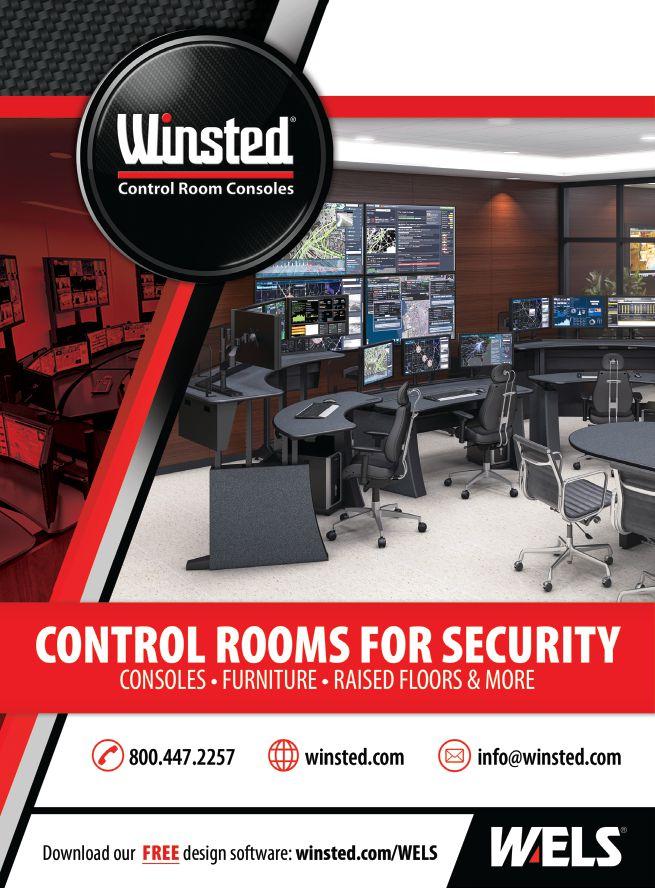SECURING CANNABIS
A guide to the technologies and trends shaping the market


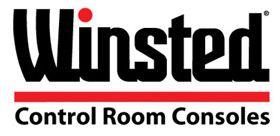


A guide to the technologies and trends shaping the market




1. Deal only with experts. Choose a security supplier who will conduct a comprehensive security audit by certified consultants. The security provider should have the expertise to help you identify gaps in your current security measures and create an action plan to improve your physical security by building safety and fire prevention practices.
2. Never settle for the minimum. When choosing a security supplier, inquire about the firm’s experience in installing systems for heavily regulated industries and familiarity with Health Canada requirements. According to GardaWorld’s cannabis security subject matter expert and Director for Major Accounts, Charles Ethier, "It's not a good idea to do the bare minimum to get approval from Health Canada; just because you get approval from them doesn't mean you should stop there, because people can still steal from you.“
3. Choose the right security system for your organization, both to comply with Health Canada’s requirements and to get the most out of your investment. Look for an integrated security system which includes access control, alarm monitoring and video camera, all accessible on the same platform and able to send real-time notifications to an off-site videomonitoring company.
4. Always be prepared. Train your staff for the worst-case scenario by using proven methods for reacting in an active shooter or bomb threat situation.
5. Save yourself the headache: look for a fully integrated security supplier who can provide best-in-class, end-to-end security solutions throughout the cannabis value chain. Vice President of Business Development for GardaWorld Cash Services, Rob Murray, recommends that “every time cannabis is transported from one place to another, a secure transportation plan should be in place. This could include a temperature controlled armoured vehicle, armed officers and a detailed itinerary and action plan in case of an emergency.”
The cannabis market in Canada is evolving rapidly, so when it comes to transporting the product in its various forms, special attention must be devoted to the use of secure transportation companies. Our recommendation is to use the same external security that a bank uses
As a national, fully integrated security services provider, GardaWorld is uniquely positioned to provide best-in-class, end-to-end security solutions throughout the cannabis value chain. We are equipped with a centralized dispatch centre to coordinate every step of the service offering in one location. We provide peace of mind by consolidating the flow of communication.
Whether you are a licenced or micro-producer, or if you operate a transformation facility, GardaWorld’s integrated security systems respect all Health Canada’s cannabis regulations and are essential to the complete protection of your business.
• Alarm monitoring and response
• Access control
• Video surveillance
• Anti-intrusion devices
• Fire alarm systems

GardaWorld is Canada’s only coast-to-coast armed and insured service provider for cannabis transportation. We make sure your product gets where it needs to go securely.
• Temperature-controlled vehicles
• Professionally trained armed guards mitigate risk and secure your shipment
• Continuous real-time GPS tracking
• Security system evidence collection + Security Services + Staffing Services, and much more!
garda.com/cannabis -security


When the Government of Canada decided to legalize the cannabis industry, there were many questions related to security and the potential criminal activity that would result from the production, transportation and sale of cannabis products. But what are the current and emerging threats that are of the greatest concern to the industry?
“The degree of crime that was expected with the legalization of cannabis never materialized to the extent that the federal government predicted. However, this does not negate the fact that there’s an emerging risk of crime to the cannabis industry,” says Mike Soberal, senior director of corporate security at Aurora Cannabis.
Soberal notes there is an existing and growing risk of organized crime penetrating the inner workings of the cannabis industry.
“It’s certainly a difficult target to
The most pressing security concerns in the cannabis industry
By Andrew Snook
breach but through careful observation and by learning the processes at different cannabis companies, weak spots may be identified,” he says.
While current Canadian regulations don’t dictate the experience required to fulfill the position of head of security in order to become a licensed cannabis producer, Soberal says it is crucial to have someone with a strong security background in this role.
“Whether that’s through a certification, such as the Certified Protection Professional (CPP) or previous law enforcement experience, having an extensive background in security is necessary to ensure your team is vigilant and able to prevent any opportunity for organized criminals to strike and infiltrate the industry,” he says.
Ken Doige, founder and CEO of ESRM Solutions (Enterprise Security Risk Management), says cannabis producers and retailers need to understand the true value proposition from an internal security program and
not focus on keeping upfront costs as low as possible.
“That’s no different than the battle I fought in my years in corporate security,” he says. “Security professionals are always trying to position themselves to show what the value proposition is that they’re bringing to the organization, and I think the cannabis sector still needs maturing in that respect as far as leadership is concerned – to understand the importance of a very integrated security program.”
Doige says retailers and licensed producers (LPs) need to understand the potential risks within their companies, which can be done by hiring security professionals who can identify those risks and offer solutions to help mitigate potential issues.
“I think, to a large extent, many of those requests are being shelved and are being met with, ‘Look, what’s the minimum we need to do to pass regulatory requirements?’
Organizationally, that’s the biggest hurdle,” he says. “It’s not just about
being compliant. If that was the case, then there wouldn’t be any security programs other than what is mandated by government. But having a riskbased approach to a security program is the key to success in organizations. I think there just needs to continue to be maturing in these programs.”
One of the biggest areas of concern for LPs is internal theft, whether it’s theft of intellectual property, such as genetics, or the theft of products.
Two ways to help mitigate some of the internal thefts are a focus on enforcement and being diligent with random searches, as well as doing security town hall meetings that requires mandatory attendance for each employee.
“We would go through all of the responsibilities that every employee has in regard to securing the facilities and the product and making sure it’s not diverted into the illicit market, which has always been a big concern for all of us,” Doige says. “That potential for internal theft, whether it’s just being used for personal use, or theft of genetic materials that can go to a competitor, those are certainly two areas of concern on the LP side.”
When it comes to the smaller retail shops, the owners typically do not have the assets of the larger corporations and do not have access to the same level of resources or security expertise.
“That’s where I think you’re going to see additional robberies and violent acts on the retail side of things,” Doige says. “I’m quite pleased to see that many jurisdictions have loosened the regulations on window coverings, for instance, because that was always a big issue for us as security professionals in the cannabis industry on the retail side. Giving somebody complete anonymity when they enter a store to lock the door and commit a robbery completely undetected because the windows are all covered. That was a big hurdle to overcome.”
While many LPs have tight security inside their production facilities, loss and theft of cannabis products during the transportation process poses a significant threat, Soberal states.
“It’s all over the map as far as the regulatory regime is concerned,” Doige adds. “There are such stringent procedures and regulatory frameworks around the production, storage and sale of cannabis products, but anyone from Canada Post to Purolator to Pineapple Express is delivering this stuff. There are no security requirements around bulk transport.”
He says transport trucks delivering cannabis have been hijacked and that there are no specific regulations around it to assist producers or transporters.
“I really think it puts the industry at jeopardy, as well as the transport folks. I’m not saying it needs to be all armoured because it’s just not practical with the amount of product that’s being moved, but I’m hoping that the review of the federal regs this year comes out with a little more consistency in respect to bulk transport of cannabis products,” Doige says.
Soberal also recommends keeping up to date on current regulated protocols and to be aware of any new trends, regulations or changes within the industry.
“One way to do this is by networking with colleagues. Being wellconnected with global organizations such as ASIS International, Canadian Security Association (CANASA), American Society of Testing and Materials (ASTM) and International Organization for Standardization (ISO) will allow you to stay on top of best practices and global standards,” he says.
Doige says having the heads of security at your organization be part of a peer group can help with keeping a pulse on the latest threats, as well as generate new ideas by comparing notes and intelligence sharing on an informal basis.
Lorne Lipkus, founding partner of Toronto-based law firm Kestenberg Siegal Lipkus LLP, says counterfeit products are another security risk that the cannabis industry needs to consider. Lipkus regularly litigates a wide variety of anti-counterfeiting cases including copyrights, trademarks, and industrial designs. He says that the counterfeiting of cannabis packaging is an area of concern, since this is how the product is delivered to the consumer, and the government required stamp on the package, which helps identify it as authorized and legitimate product.
Lipkus says counterfeiting is showing up more and more on the edibles side of the cannabis industry, and it poses a serious risk to consumers.
“One of the problems police are having with edibles is that people are taking the edibles and putting fentanyl in them. What you think you’re getting, isn’t what you’re getting,” he says.
To help battle counterfeit packaging, Lipkus says a secure supply chain that people can rely on is important. He says the government needs to embrace using technologies on cannabis packaging to help show consumers that what’s inside is the real product, not unlike the technologies used to identify legitimate money and passports.
“The level of technology built into them is fantastic,” Lipkus says. “Overt, covert and forensic technologies are built into these labels, that’s what we’re talking about. It exists today, so there’s no reason that packaging can’t have that level of technology on it.”
Organized criminals could still counterfeit government stamps, and they will potentially fool some consumers, so it is important to educate the public on what to look for when purchasing cannabis products.
“We should be pushing our government to make sure they’re on the forefront of educating the public on how to tell the difference,” he says. This article originally appeared in the May/June 2021 issue of Grow Opportunity.
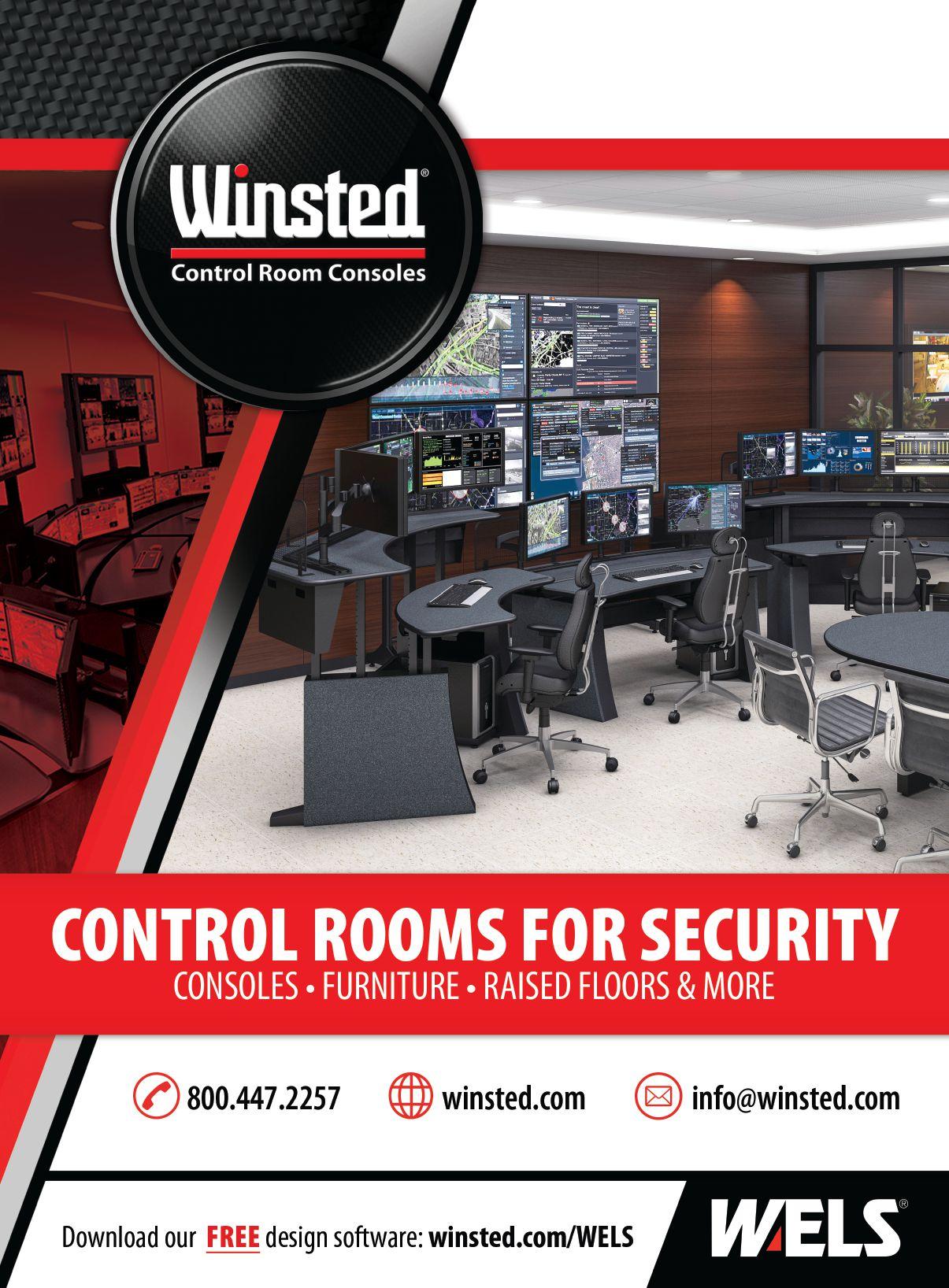
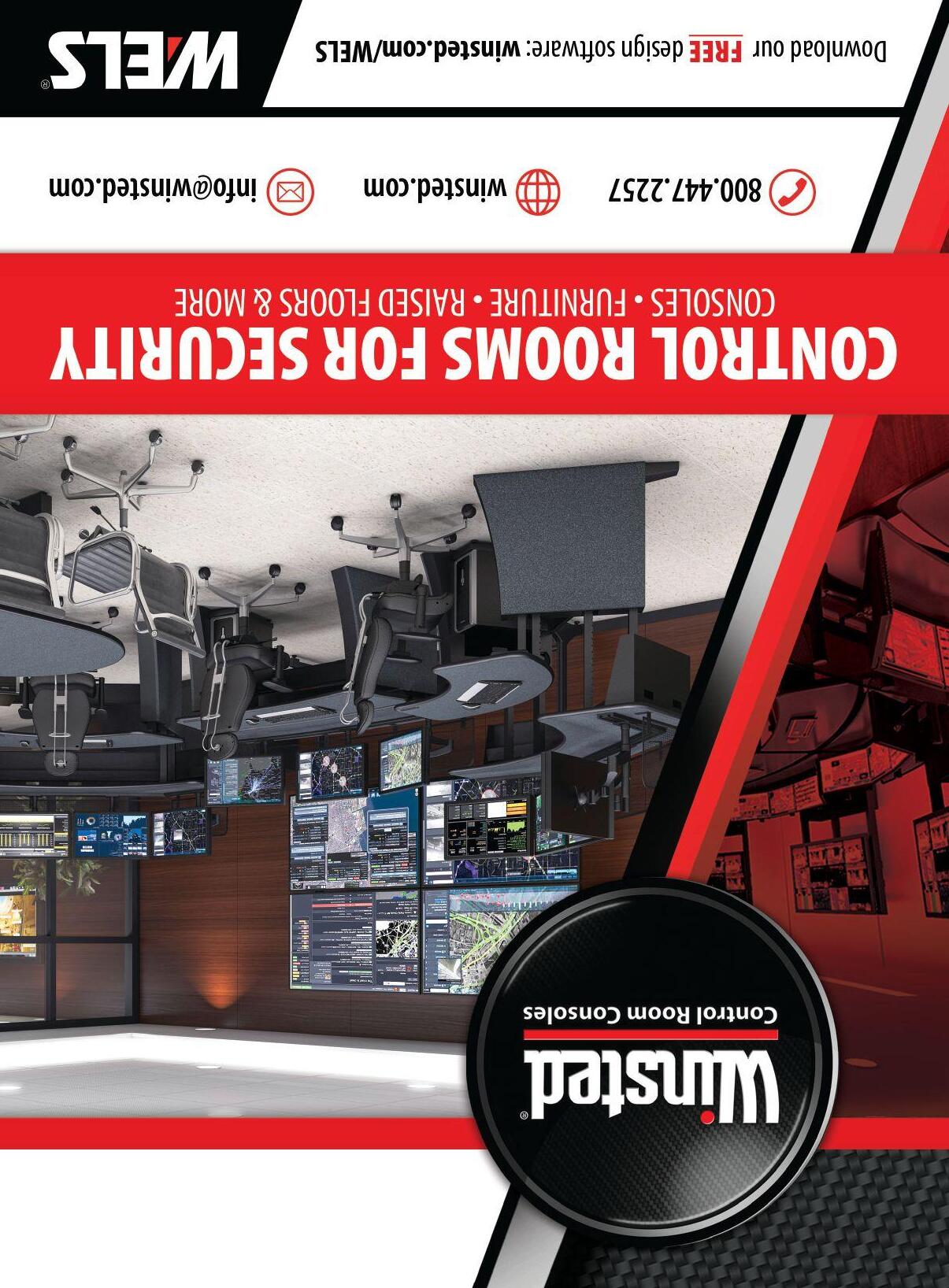
Campus safety is one of the largest issues facing universities.
The University of Toronto is located in the downtown area of the city. Due to the location, the campus sees foot traffic from roughly 100,000 students and patrons each day. Ensuring the safety of its students is a tall order, and the responsibility falls on the university’s public safety unit, the campus police.
Ensuring student safety against a variety of threats is no easy task.
In 2013, Campus Police realized their communication center - which services the entire tri-campus university - was in need of a renovation to better serve and protect its students. But the space itself had its challenges.
The University of Toronto Campus Police had very limited workspace, compounding an already challenging situation. Unfortunately, these space limitations can be common among universities. As student populations rise, space becomes a valuable commodity around campus.
“We knew we had space restrictions because everything needed to be housed in one central room, and that space is roughly 20’ x 40’,” said Alan Truong, Manager, Security Systems and Services of The University of Toronto Campus Police. “When we were looking at our renovation and development plan, we were trying to fit everything in terms of access control, 24/7 employee utilization along with all of the operational systems required.”
This 800-square foot space needed to include multiple desks, a video screen and a scalable computer monitor stand for the 80+ employees to use on an ongoing basis.
Campus Police began working with Minneapolis-based Winsted Corporation, a manufacturer of technical furniture and control room consoles.
Tasked with meeting the specific needs of Campus Police in a confined space, the Winsted team scouted the location
to determine how best to maximize square footage.
“Although our space was limited, Winsted presented us with a variety of options that would have worked well for our needs,” said Truong.
The solution – Winsted’s Prestige Ascend Sit/Stand Consoles.
Campus Police was outfitted with a series of six Ascend consoles with custom millwork. The Ascend consoles include many features that lend themselves to critical control rooms, including Versa-Trak monitor mounting system, electric-lift legs, easy-access cable management and multiple-
beyond, Winsted ensured that it got this job right.
“They were with us since day one, which is great,” said Truong. “Communication was always open and their reps would follow up with everything we asked of them. They still follow up with us to make sure we have absolutely no problems.”
In a very important room with limited space, every inch needed to be used to its fullest potential to achieve success.
The same could be said for the University of Toronto Campus Police.
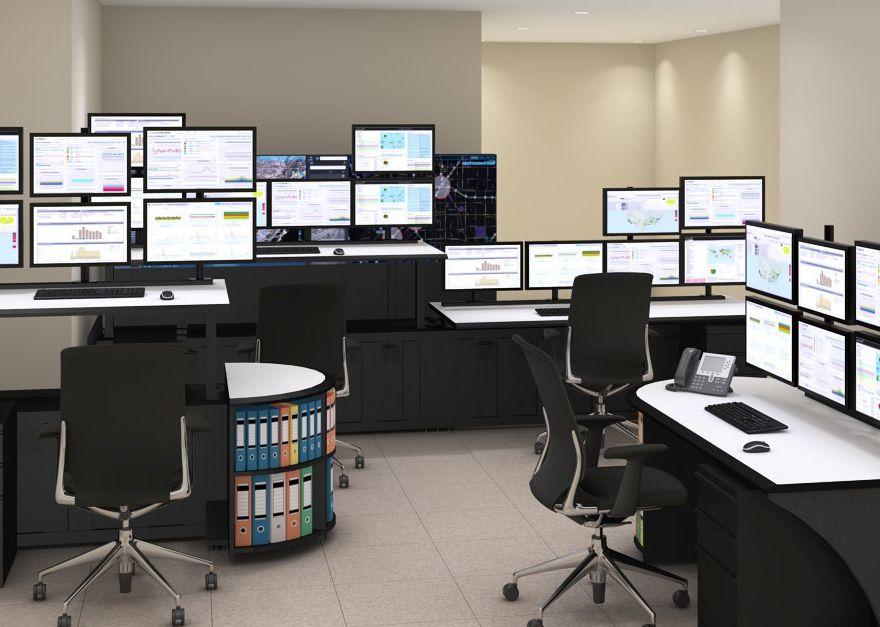
purpose doors.
The consoles offer three programmable height settings for versatility and comfort, allowing the desks to be adjusted to any height. This is a particularly helpful feature when multiple communications officers use the same space on any given day.
Within a few months the newly designed room was fully outfitted and operating smoothly.
From concepting to installation and
When optimized to its full efficiency, something that may look small to the outside perspective has the opportunity to achieve great things. “I’ve had a very professional experience and am very satisfied with the overall dealings with Winsted, throughout the entire process and follow-up,” said Truong. “In fact, a few people from different agencies have come to see our set-up and layout, we’re very happy with it.”
